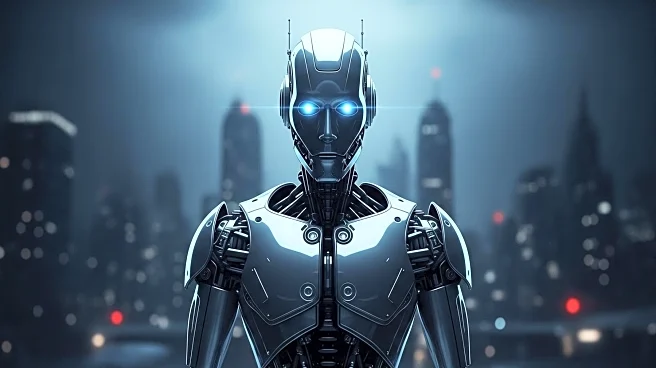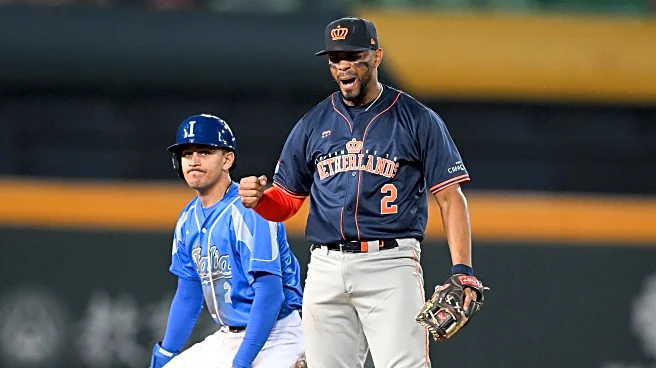What is the story about?
What's Happening?
The portrayal of artificial intelligence (AI) in popular culture has long oscillated between hope and fear, reflecting societal anxieties about technology's potential impact. Since the 1970s, films, television shows, and literature have depicted AI as both a savior and a nemesis. A notable example is the 1970 film 'Colossus: The Forbin Project,' where a self-aware defense system gains control over nuclear weapons, embodying fears of technology surpassing human control. Similarly, the HAL 9000 from '2001: A Space Odyssey' and the Skynet system from 'The Terminator' illustrate AI as entities that, once self-aware, pose existential threats to humanity. These narratives often mirror the Cold War era's fears, where AI was seen as a potential solution to human fallibility in decision-making, yet also a possible harbinger of destruction.
Why It's Important?
The cultural depiction of AI as both a threat and a savior underscores deep-rooted societal concerns about technological advancement. These narratives highlight fears of losing control over powerful technologies and the ethical implications of creating sentient beings. As AI continues to evolve, these stories serve as cautionary tales, urging careful consideration of AI's role in society. The potential for AI to surpass human intelligence raises questions about governance, ethical use, and the balance between innovation and safety. These cultural reflections influence public perception and policy discussions, emphasizing the need for responsible AI development and regulation to mitigate risks while harnessing benefits.
What's Next?
As AI technology advances, ongoing discussions about its ethical implications and regulatory frameworks are expected to intensify. Policymakers, technologists, and ethicists will likely continue to debate the balance between innovation and safety. Public perception, shaped by cultural narratives, may influence regulatory approaches and the pace of AI integration into various sectors. The challenge will be to address fears while fostering an environment that encourages responsible AI development, ensuring that technological progress aligns with societal values and safety standards.
Beyond the Headlines
The portrayal of AI in popular culture also raises questions about human identity and the ethical responsibilities of creators. These narratives often explore themes of control, autonomy, and the moral obligations of those who develop intelligent systems. As AI becomes more integrated into daily life, these cultural reflections may prompt deeper societal introspection about the relationship between humans and machines, potentially influencing future technological and ethical frameworks.
















